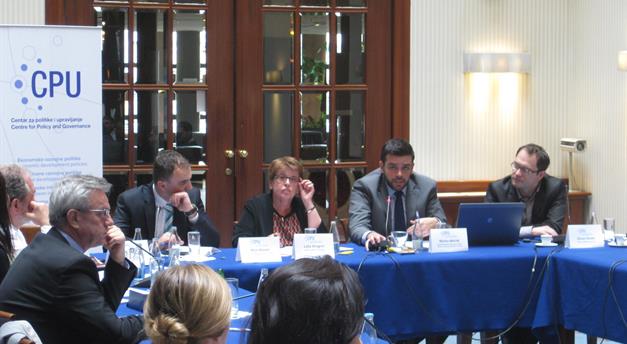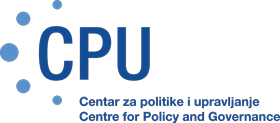
Work at the round table "The reform and modernization of state aid as a precondition for economic development" clearly pointed to the insufficient awareness of the professional community about the activities on reform in this area and the necessity and justification of such forms of work and exchanges of opinions officials and the public.
Through two presentations and the presentation of Mr. Alija Aljović, Deputy Chairman of the BiH Council for state aid, the participants of the round table were introduced with EU practice and experience of new EU member states in the reform of state aid, the experience of Croatian and current activities in BiH.
Recommendations for BiH presented in the presentations have been confirmed through discussions of the participants at the round table.
The necessity of training on how to categorize certain forms of aid and the need of timely submission of complete reports for aid donors was particularly highlighted, especially at the municipal and cantonal level. Reports submitted in 2011 and 2012 clearly indicated inconsistencies and incomplete reporting.
The lack of understanding of certain aspects of government assistance was pointed through discussion, especially fiscal incentives, grants to nonprofit organizations and public broadcasters, and the permitted and prohibited forms of government assistance for infrastructural organizations. The reform of the state aid system will require the separation of operators and infrastructure in different sectors (transport, electric power distribution). Croatian experience points to the necessity of conditioning state aid to enterprises in difficulty with clear plans for their restructuring.
Due to the complex administrative structure in BiH with four administrative levels at which state aid is granted, it would be justified to intensify work on the program of registry of state aid, as well as development and adoption of strategies and policies of state aid. Insufficient technical capacities and staff of the Secretariat of the Council of State aid indicate the need of providing more support to the staff in ministries of finance at the entity levels at the initial stages of establishing a management system of the state aid.
Croatian experience points to the importance of informing the business community to the availability of aid, but also on the forms of aid that are not in line with EU regulations, and to the important role that the media play in informing the general public about the necessary reforms and their effects.

